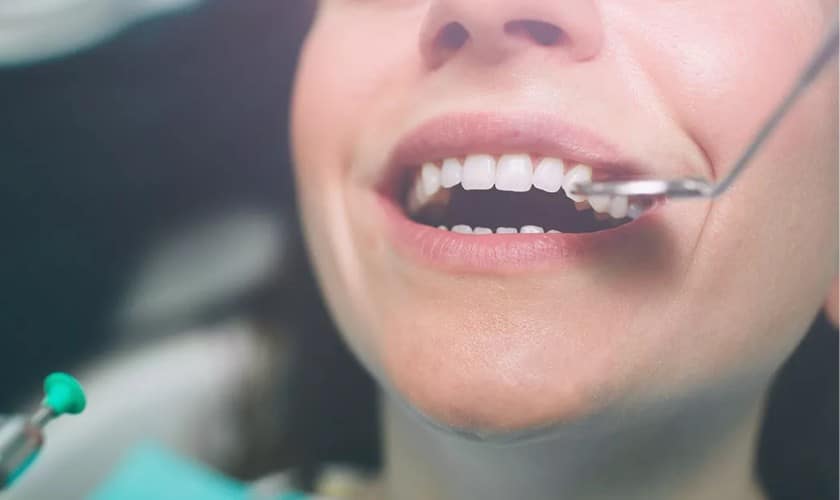A bright and dazzling smile can do wonders! It instantly boosts your confidence, making you feel like a million dollars. However, with the constant consumption of coffee, tea, and red wine – our teeth tend to become dull and discolored over time. Luckily, there are many natural teeth whitening remedies that can help restore your pearly whites without breaking the bank or exposing yourself to harmful chemicals. In this blog post, we will explore the top 5 natural teeth whitening remedies that are easy to try at home and provide amazing results! Get ready to flash your brightest smile yet!
The Benefits of Natural Teeth Whitening Remedies
When it comes to teeth whitening, people often opt for commercial products that contain harmful chemicals. However, natural teeth whitening remedies are a safer and more cost-effective option. Not only do they help in removing stains and discoloration from your teeth, but also provide numerous other benefits.
One of the biggest advantages of using natural teeth whitening remedies is that they are gentle on your enamel. Unlike commercial products, these remedies don’t cause any damage or sensitivity to your teeth. In fact, many of them contain ingredients like baking soda and coconut oil that actually strengthen your enamel.
Another benefit is that natural teeth whitening remedies improve overall oral health. Ingredients like turmeric and peppermint oil have anti-inflammatory properties that help prevent gum disease and reduce inflammation in the mouth. This leads to healthier gums and fresher breath.
Additionally, natural remedies are eco-friendly as they don’t come packaged in plastic containers or involve harsh chemicals being released into the environment during production.
Using natural teeth whitening remedies can be a fun DIY activity! You can experiment with different recipes until you find one that works best for you while enjoying the process at home with friends or family members.
Choosing a natural approach to achieve white teeth not only provides aesthetic benefits but also promotes better oral health without harming our planet.
Top 5 Natural Teeth Whitening Remedies
When it comes to natural teeth whitening remedies, there are plenty of options out there. But which ones actually work? Here are the top 5 natural teeth-whitening remedies that you need to try:
Baking Soda: This household staple is known for its ability to whiten teeth. Simply mix a small amount of baking soda with water until it forms a paste and then brush your teeth with it.
Hydrogen Peroxide: Another common ingredient in many home whitening treatments, hydrogen peroxide has been shown to effectively whiten teeth when used properly. Mix equal parts hydrogen peroxide and water, swish around in your mouth for about a minute, and spit out.
Apple Cider Vinegar: While acidic in nature, apple cider vinegar can help remove stains from your teeth when used correctly. Dilute the vinegar with water before using it as a rinse or brushing with it.
Activated Charcoal: This black powder might seem counterintuitive for whitening your smile but activated charcoal has been shown to absorb impurities on the surface of your enamel leaving you with brighter-looking pearly whites.
Oil Pulling: Also called “swishing,” oil pulling involves swishing coconut oil (or another type of oil) around in your mouth for 10-15 minutes daily.
This Ayurvedic practice may not have enough scientific evidence to back up its effectiveness, but some people swear by this method claiming they experienced an improvement in their oral health overall. These natural remedies offer an affordable alternative if you’re hesitant about professional treatment or simply want more control over your routine at home!
How to Use Natural Teeth Whitening Remedies
Using natural teeth whitening remedies can be a safe and effective way to achieve a brighter smile. However, it’s important to know how to use these remedies properly in order to get the best results. Make sure you brush your teeth thoroughly before applying any natural teeth-whitening remedy. This will help remove any surface stains or debris that could interfere with the whitening process.
Next, apply the chosen remedy directly onto your teeth using either a toothbrush or cotton swab. Be careful not to let the mixture come into contact with your gums as some ingredients may cause irritation. Once applied, leave the remedy on for the recommended amount of time which can vary depending on the recipe used. Some remedies may only while others may require up to 15 minutes.
After the time is up, rinse your mouth out thoroughly with water and brush your teeth again with regular toothpaste. It’s also important to note that these remedies should only be used once or twice a week as excessive use may damage enamel over time.
By following these simple steps and being consistent in their use, natural teeth whitening remedies can provide noticeable results without harsh chemicals or expensive treatments. Natural teeth whitening remedies are a great alternative to expensive and chemical-laden treatments. Not only are they effective in providing you with a brighter smile, but they’re also safe for your health and the environment.
Source: Teeth Talk Girl
Remember that consistency is key when using these remedies. Don’t expect immediate results after just one use – be patient and persistent in your efforts, and you’ll see the difference over time.
Additionally, it’s important to maintain good oral hygiene habits such as brushing your teeth twice a day, flossing daily, and visiting your dentist regularly for checkups.
With these top five natural teeth whitening remedies – baking soda, hydrogen peroxide, activated charcoal, coconut oil pulling, and apple cider vinegar – you can achieve a brighter smile without breaking the bank or compromising your health. Give them a try today!





